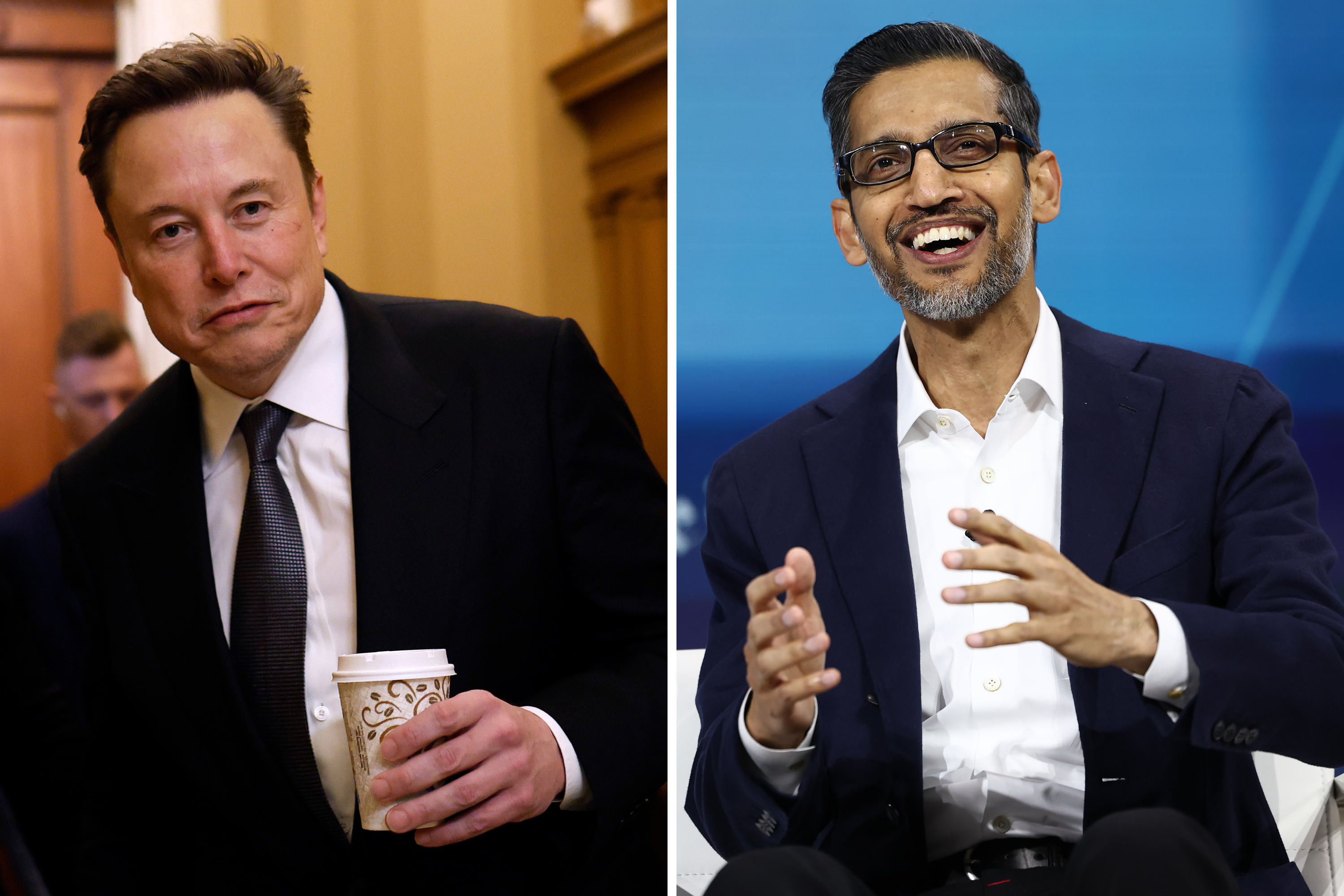Monday saw an announcement from tech goliath Google that reverberated around the computing industry: a new state-of-the-art quantum computing chip called “Willow” with unprecedented capabilities.
Among those to congratulate the company on its breakthrough was Tesla and SpaceX CEO Elon Musk, who gushed with enthusiasm on his social media platform X (formerly Twitter).
Harnessing the power of particle physics, Willow solved a problem in under five minutes that would take the world’s fastest classical supercomputer an unimaginable 10 septillion years—that’s a 1 followed by 25 zeros.
This groundbreaking achievement, developed at Google‘s Santa Barbara lab, signals a significant leap in the race toward the future of computing.
Anna Moneymaker/ Michael M. Santiago/Getty
Quantum computing is a revolutionary type of computing that leverages the principles of quantum mechanics—the fundamental theory in physics that describes the behavior of particles at the atomic and subatomic levels.
Unlike classical computers, which use binary bits (0s and 1s) as the smallest units of data, quantum computers use quantum bits or qubits.
Willow, equipped with 105 qubits, represents a breakthrough in quantum computing by addressing one of its biggest challenges: error correction.
Traditionally, as qubits increase in number, their sensitivity to tiny disturbances also rises, leading to errors.
However, Google claims to have turned the tables on this trend. Using an innovative design that links qubits in new ways, Willow reduces error rates even as the qubit count scales up.
“Willow can reduce errors exponentially as we scale up using more qubits,” Hartmut Neven, head of Google Quantum AI, said in a statement.
Google also claims Willow can correct errors in real time—a critical step toward making quantum computing practical for real-world problems in medicine, artificial intelligence and energy optimisation.
Google CEO Sundar Pichai announced Willow on X, calling it a “state-of-the-art quantum chip.” The milestone caught the attention of tech magnate Elon Musk, who responded with a single word: “Wow.”
The exchange between Musk and Pichai quickly evolved into a fascinating discussion about the future of quantum technology and humanity’s energy needs.
When Pichai suggested the possibility of building a “quantum cluster in space” using Musk’s Starship, Musk replied, “That will probably happen.”
Musk then ventured into theories of advanced civilizations, advocating for humanity to reach Kardashev Type II status—a measure of a civilization’s ability to harness the energy of its star.
He also proposed placing solar panels in arid regions to accelerate energy progress, a suggestion Pichai supported.
The technical back-and-forth underscored the potential of quantum computing and the ambitious visions of tech leaders like Musk and Pichai.
That will probably happen.
Any self-respecting civilization should at least reach Kardashev Type II.
In my opinion, we are currently only at — Elon Musk (@elonmusk) December 9, 2024
“We are past the break-even point,” Neven declared in the announcement.
Willow’s debut aligns with growing excitement about quantum computing’s applications, from creating new medicines to addressing the planet’s climate woes.
Google’s vision even extends beyond Earth’s confines, hinting at a future where quantum clusters in space could revolutionize computing.
Built in Google’s new manufacturing facility in California, Willow is the culmination of over a decade’s worth of work.
Alongside the announcement, Google published its findings in the journal Nature.
Reactions to Willow’s debut have been overwhelmingly positive. Computer scientist and podcaster Lex Fridman summed up the sentiment in a post on X: “Amazing 🤯 Congrats!”
Despite the excitement, fully fledged quantum computing could be decades away.
Do you have a tip on a science story that Newsweek should be covering? Do you have a question about quantum computers? Let us know via science@newsweek.com.
Reference
Acharya, R., Abanin, D. A., Aghababaie-Beni, L., Aleiner, I., Andersen, T. I., Ansmann, M., Arute, F., Arya, K., Asfaw, A., Astrakhantsev, N., Atalaya, J., Babbush, R., Bacon, D., Ballard, B., Bardin, J. C., Bausch, J., Bengtsson, A., Bilmes, A., Blackwell, S., … Google Quantum AI and Collaborators. (2024). Quantum error correction below the surface code threshold. Nature, 1–3. https://doi.org/10.1038/s41586-024-08449-y

